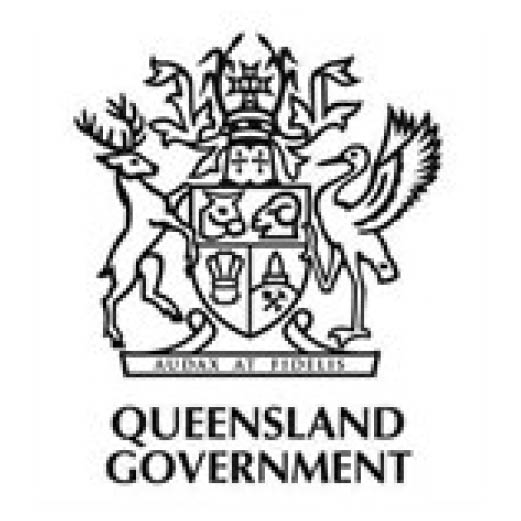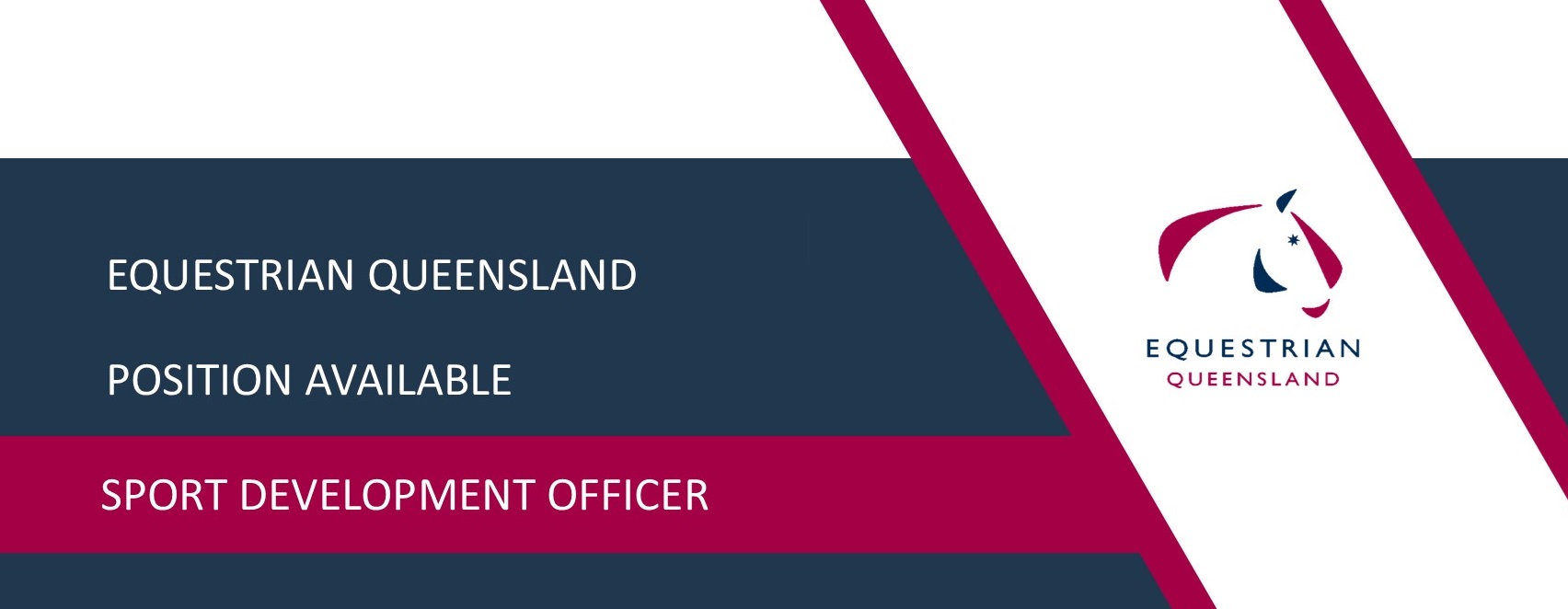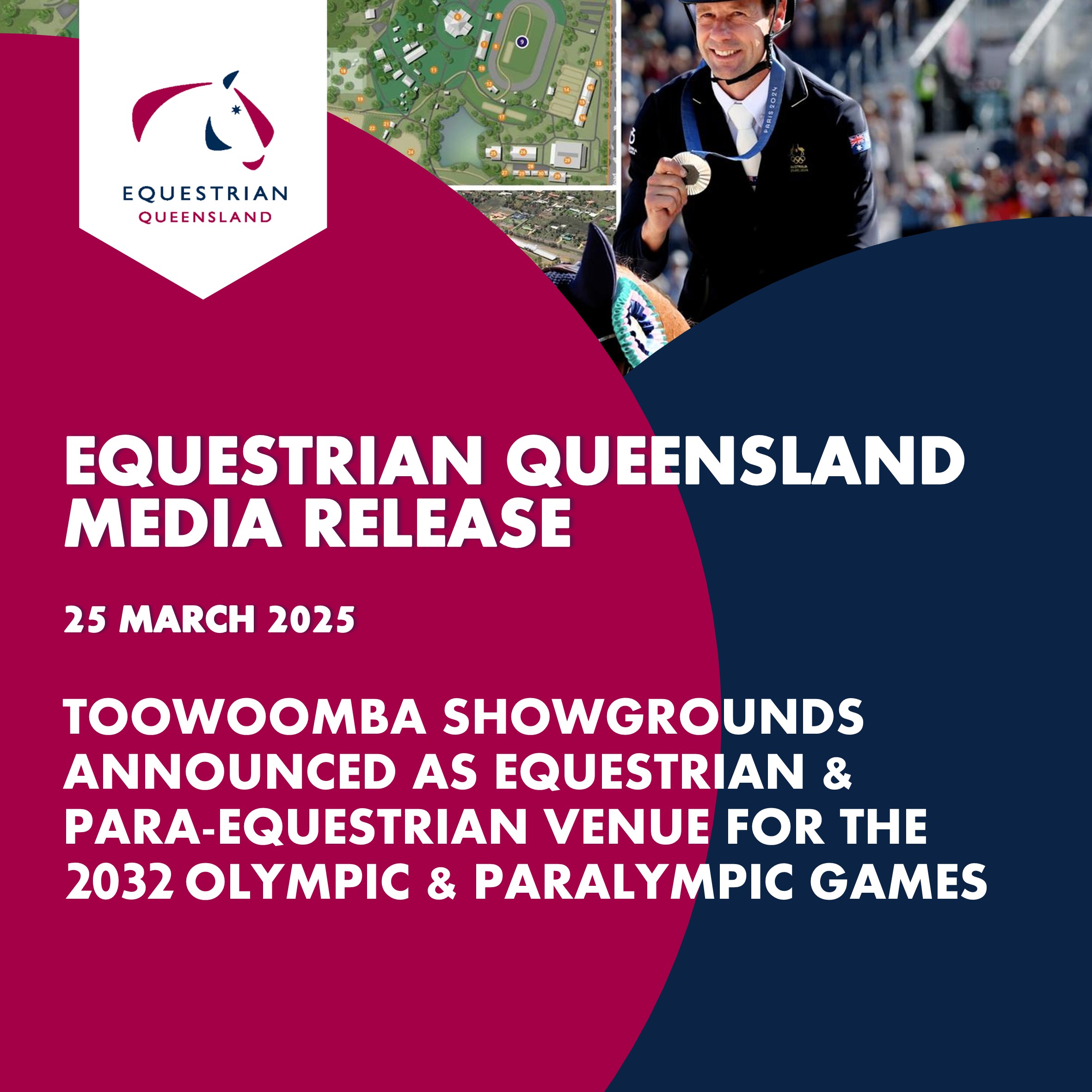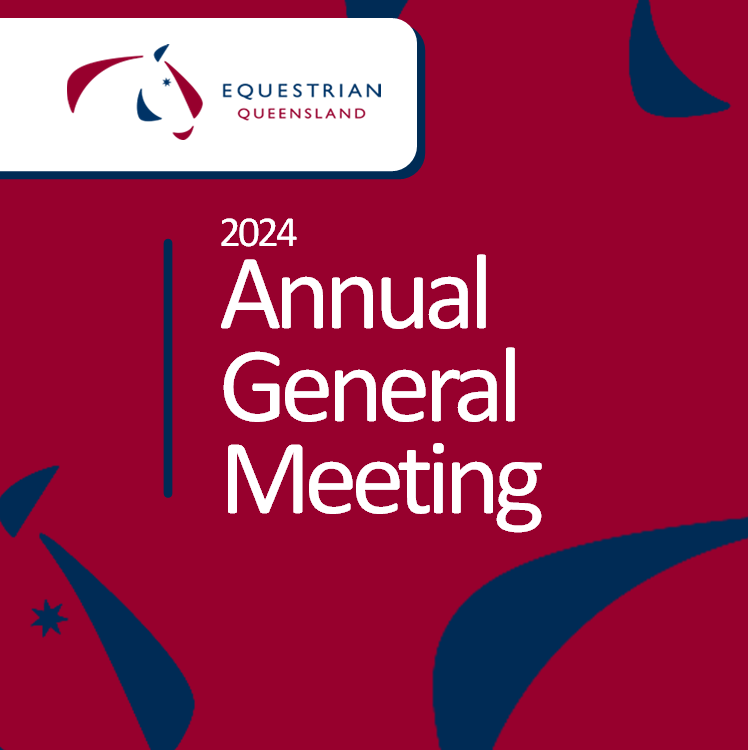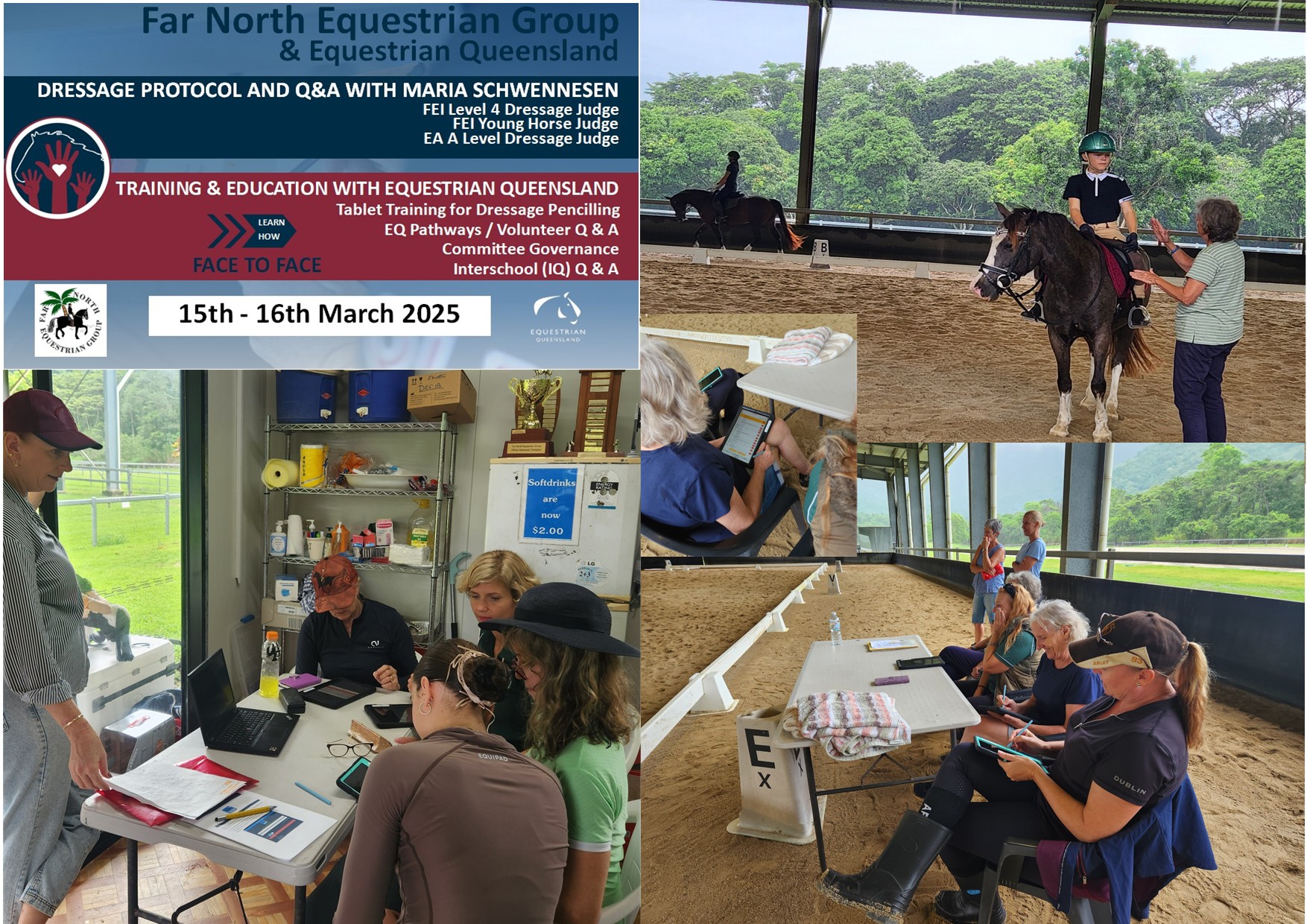What is the Equine Medication Control Program?
The Equine Medication Control Program (MCP) or swabbing is the testing of a horse’s urine and blood samples to ensure that all horses are competing under the EA and FEI competition rules without being influenced by prohibited substances to create a level playing field.
In Queensland, the Equestrian Queensland (EQ) Office administers the MCP for EQ/EA national events. The following process applies to all Queensland based MCP tests (excluding FEI events).
The EQ swabbing budget is generated from a $50 levy for each new horse registration that is received and is then used to conduct Medication control (MCP) at EQ selected events.
Please Note: As of 2016, FEI events now fall under FEI’s jurisdiction. This includes the selection of FEI events to be sampled, the allocation of swab kits, the booking of the FEI Vet and Swabbing personal etc. As such the FEI events have been removed from the EQ swabbing calendar of EQ funded swabs. Medication Control at FEI events will still happen but is now directed by the FEI on an International scale. All FEI Events will need to charge each horse entered into FEI classes a swabbing levy (as outlined in the FEI Rules and Regulations).
Where and when does swabbing happen?
EQ targets a confidential selection of events across all seven EQ sport disciplines.
First and foremost, the compulsory events are targeted; these are events such as State Championships, National Championships, Young Horse/Rider events, HOTY events, events with large prize money (subject to event notification).
After all the compulsory events have been placed on the proposed calendar EQ will then target a number of random events. Random sampling (swabbing) can occur at the any of the following events:
- At all selection or qualifying event for Championships or Finals
- At least once a year at official events that are run regularly and more than six times a year
- At any EA event or competition that holds “graded” competition
- At any EA affiliated club/body that holds “graded” competition
- At any EA Official Measuring Day
- OR at any other EA/affiliated/sponsored event
Who is involved?
Only appropriately qualified personal will be testing the horses, this includes a qualified Veterinarian, and an EA Medication Control Steward.
Equestrian Queensland has an experienced team of qualified Medication Control Stewards, their role is to; notify the competitor of the horses MCP selection, check all appropriate forms are signed, sighted and completed properly; send the samples to the laboratory for testing; and stay with the horse at all times from the time of notification until the testing is complete.
Which horses will be swabbed?
Any horse, competing at an event run under EA rules is eligible to be swabbed under the EA MCP. This includes Senior and Junior members of any category at any participant or competitive competitions. Horses may be sampled at any time during competition and may be sampled more than once.
There are many methods for selecting horses to be swabbed at EA events and competitions.
The selection processes available to the Ground Jury/Event Organising Committee include any of the following:
- Horses may be chosen specifically because their behaviour raises suspicion, in other words, they appear drugged or under the effect of medication (deemed a Ground Jury “spot test”)
- Horses may be chosen at random from all competitors entered, or chosen at random from a group of winners or placegetters (deemed a random selection)
- Horses may be chosen because they are winners or placegetters (deemed a required selection)
- Horses may be chosen because they have been withdrawn or scratched (deemed a Ground Jury “spot test”)
- Horses may be chosen because of poor performance (deemed a Ground Jury “spot test”)
- Horses may be chosen at a judge’s request (deemed a Ground Jury “spot test”)
- The Ground Jury may delegate the responsibility to the Veterinarian, the Chief Steward (not the Medication Control Steward) or another senior member of the Organising Committee (where there are no conflicts of interest) to decide upon the method of selection or select the horse(s)
What happens if the horse I am competing is selected for swabbing?
As soon as is appropriate, the competitor will be notified that the horse has been selected for swabbing. Once notified a Medication Control Steward will stay with the horse at all times until the testing has been completed.
The rider will be given the opportunity to untack the horse and collect the horses EA identification documents from their vehicle before the Medication Control Steward accompanies the combination to the ‘Swabbing Box’. At this time the rider may appoint a person responsible for the horse (this may be the owner or groom or any nominated person over the age of 18) if necessary. If the rider is a junior, the swabbing processes must be witnessed by a person over 18 years of age. From this point, the person deemed responsible (PR) for the horse is required to stay with the horse and sign all remaining documentation regarding the swab. These forms will be provided by the Medication Control Steward who will explain the entire process.
Once in the “swab box”, the Veterinarian will collect blood samples from the horse, and the collection of urine will also be attempted by the Medication Control Steward.
What happens after the testing is complete?
At the completion of the swab, all samples are sealed in the presence of the person responsible for the horse and sent to the Sydney Racing Forensic Laboratory for testing.
The person responsible for the horse will be given a sample number for that horse’s blood. If the blood samples are deemed negative to any prohibited or controlled substances no notification will be made however the sample number will appear on the negative (Clear) Sample Analysis Notifications.
Upon receipt of a positive result from an “A Sample” the laboratory will notify the EA CEO. EA shall then promptly notify the competitor of;
- the adverse analytical finding (positive swab);
- of the rule that has been violated;
- the right to request the analysis of the “B-Sample”;
- the right to be present at the identification and opening of the “B-Sample”;
- the right to request copies of the A & B sample laboratory reports;
- the option to waive certain rights by accepting an administrative penalty
If the “B-Sample” proves negative, the entire test will be considered negative
What are the penalties for the use of prohibited drugs?
Automatic Disqualification
A violation of the any of the Equine Anti-Doping & Medication Control Rules (EADMC Rules) in connection with an in-competition test at a given event automatically leads to the disqualification of all results, including forfeiture of any medals, points and prizes.
Sanctions
Penalties for violations of the EADMC rules can vary from an administrative sanction, fines applied to a full ban from riding in the sport.
Sanctions can be found in the Equestrian Australia Equine Anti-Doping & Controlled Medication Regulations which are located on the National website under Policies and Bylaws, Doping/Medical policies.
How do I know if I am giving my horse a controlled or prohibited substance?
The FEI strongly recommends that all members and in particular riders, are familiar with the FEI’s principles of Clean Sport.
FEI Warning Regarding the Administration of Supplements to Horses
All prohibited and controlled substances are listed on the FEI Clean Sport Database and are listed according to their active ingredient (not the drug brand name).
To check the FEI Equine Prohibited Substances List (Effective 1st January 2016), you can use the:
- FEI Clean Sport Prohibited Substances Database Website
- FEI Clean Sport Prohibited Substances Database App for ios
- FEI Clean Sport Prohibited Substances Database App for android
If your horse has had any veterinary attention in the weeks preceding an event or competition, it is recommended that you consult your vet to confirm the active ingredients in any drugs administered and the withholding periods for these medications. This list should then be cross referenced against the FEI prohibited substance database. It is also encouraged that competitors keep a written log of all medication that the horse receives. Participants may elect to do this using the FEI Medication Treatment Logbook
NOTE: It is the rider’s responsibility to ensure they are not competing a horse under the influence of any illegal substance.
Further Information can be found in the EA National Medication Control Policy and on the EA Medication Control Webpage
For information on Human Anti-Doping Click Here
Does FEI swabbing differ?
There are some minor differences in the execution and terminology for FEI Medication Control, for more information click CLICK HERE.
Anti-doping & Improper Use of Drugs and Medicine
Anti-doping rules apply to all participants of our sport from elite down to grassroots. All members must be aware of, and have a basic understanding of, their obligations in regard to anti-doping. The Sport Integrity Australia website has a range of information and resources to assist.



